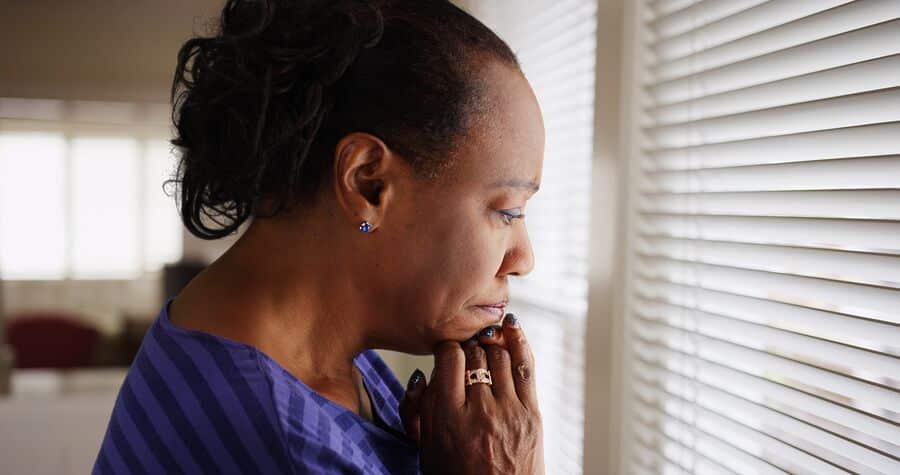Many people are unaware of what sundowning actually is. This is a symptom of dementia or Alzheimer’s disease. You will learn more about it from this guide. However, before you do, you should know that if you suspect your elderly loved one has sundowners, you should speak to their doctor right away. The doctor knows your loved one and can talk to you about ways to prevent some of the symptoms they are experiencing.

What Might Your Loved One Be Like with Sundowners?
There are so many different ways that your loved one might be like if they have sundowners. Everyone is different in the way they act and how they feel. However, with that being said, some of the most common things you might see in your loved one who has sundowners include the following:
-
- Disorientation
- Agitation (feeling anxious or upset can cause the agitation)
- Restlessness
- Confusion
- Demanding things they wouldn’t normally demand
- Irritability
- Getting suspicious of their loved ones
All of these things can be tough to deal with for your loved one, for you, for other family members, and for their elder care providers. However, once you can figure out what they are acting like because of sundowners, the sooner you can help them with the things that they need.
What Might Your Loved One Do If They Have Sundowners?
In addition to how your loved one is acting when they have sundowners, there are many things that they might do, as well. Some of the most common things that someone with sundowners will do include the following:
-
- Hitting their loved ones and elder care providers
- Yelling at their loved ones, friends, strangers, and even their elder care providers
- Pacing around their home (often due to feeling restless)
- Appearing paranoid
- Exhibiting major mood swings
These are just a few of the things that your loved one might do if they have sundowners syndrome. It could vary from one person to the next. However, these things have commonly been seen in those with sundowners.
There are many different things that someone might do if they have sundowners syndrome. Being a caregiver that is able to recognize how your elderly loved one is feeling and how they are acting because of a certain feeling is important. Sometimes it can be extremely difficult to figure this out. However, you can always talk to their doctor about the behaviors they are exhibiting.
Your loved one’s doctor can help you to understand just why they are acting that way. For instance, if they are pacing because they are feeling restless, it might be best to give them something to do with their hands. Maybe give them a book or a puzzle to do. Sundowners can be tough for everyone to deal with. Just keep in mind not to take it personally and that your loved one is just trying to express themselves.
If you or an aging loved-one are considering hiring Elder Care in Avondale, AZ, please contact the caring staff at Home Care Resources at (602) 443-4700
Sources
Mayoclinic.org
Ncbi.nlm.nih.gov
- Six Warning Signs of Diabetes to Watch for in Seniors with Dementia - May 19, 2025
- Understanding Chronic Conditions in Seniors: The Importance of Support - May 9, 2025
- Helping Your Elderly Loved One Maintain Healthy Vision - April 24, 2025




